Introduction
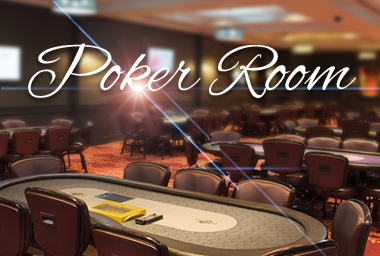
This article is about the differences between a poker room and a dining room, and how to avoid being labeled a poker novice. It assumes that the reader already knows the basics of Texas Hold-Em, but has been too intimidated to go into a casino's poker room.
Asking questions, while seated with friends at a dining room table, is a relatively safe thing to do. Asking questions at a table in a poker room can be deadly. Or at least financially costly. Hopefully, this article will answer your questions so you can go to a poker room with confidence.
This article is probably a lot longer than it needs to be. A true student of the game would immerse himself in these details before going to a poker room. The intended audience of this article is a more casual player who may become familiar with some of these details, and return here to review some of the questions that may have popped up after their first experience.
The first few sections after the House Rules section, applies primarly to cash games. If your interest is strictly tournaments, after reading about House Rules, you can probably skip to the Misc. Novice Mistakes and Bad Habits section.
House Rules
As you read this you'll see a lot of "Some poker rooms do this, some do that," etc. Asking questions about those kinds of differences will NOT get you exposed as a novice, just someone who has not played at that poker room. In many cases, asking those kinds of questions will build your credibility as an experienced poker player because you're concerned with the details of the house rules. The best time to ask is between hands when the dealer is shuffling and dealing. In areas with multiple poker rooms, some dealers may work at more than one. If the dealer's response is at all unclear, don't be afraid to call a floor person and ask again. Asking a question during a hand is bad etiquette because it breaks the concentration of those in the hand. Of course, if it's a question that will affect your play of the hand, that's a different story, but it may help a player figure out what you have.
Poker Rooms differ from the casino's main floor
Poker rooms have etiquette all their own, with rules that are very different than the rules for the main casino floor.
Because players are betting against each other and not the house, spectators might not be tolerated. After all, a 'spectator' could actually be a cheater's accomplice. Also, seating is assigned by the staff, so 'lurking' while waiting for a seat is unnecessary. When there aren't seats available, a wait list is created. When there are multiple seats available, a new player is assigned to the table with the most empty seats to keep things balanced.
Of course, it is the player's choice for the type of game and betting limits. But it's the management's job to seat you at one of those tables.
The poker room makes money by taking a small percentage of each pot, called a Rake. With more players at a table, the chances of larger pots and larger rakes increase. Therefore it's in the poker room's interest to have full / balanced tables. For the same reason, players want full tables, too. As a result, many poker rooms allow players to eat while playing, and even provide food waitresses and snack tables. They'll ask you to keep the actual food off the table, etc. Some will ask you to not eat while you're in a hand, or at least do so in a manner that doesn't slow down the game. And please try to keep the cards clean.
Also, because players cannot easily change tables, smoking is not allowed in most poker rooms.
In fact, if you wish to change tables for any reason, you need to get the floor person's assistance. He will give you a choice of new tables, if possible, as well as advise you if you can or cannot bring all the chips you have to the new table, and whether or not you'll be required to post blinds.
If you wish to change seats but stay at the same table, you can do this by asking the dealer. He will advise you when it would be acceptable to move. All of your chips will remain in play.
If you want to leave, you can do so at any time. If you wish to take a short break and return to your seat, all of your chips must remain on the table.
Wait List — Games and Limits
When you arrive at the poker room, in most cases there is an overhead computer display showing all the games, betting limits, and a list of people waiting.
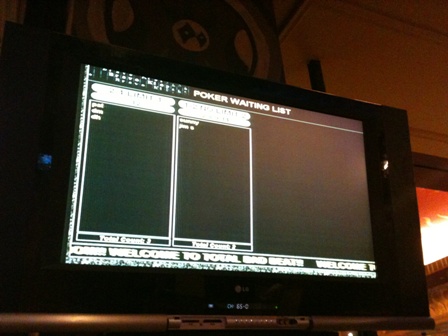
This is a typical wait list. Click for a larger view (Sorry that it's blurry).
The top of each list shows the type of game. The next line has the table numbers, intended for the staff's use. Below that are the first 15 or so names on the list. On the bottom is the count of names, useful if the display is maxed out.
The games will be labeled things like HE $2/$4 or LHE $2/$4 or Limit $2/$4, and NL $1/$2 or NLHE $1/$2 or No Limit $1/$2. Those represent the two typical games a novice will play: Limit Texas Hold-Em, with $2 and $4 fixed bet sizes, and No Limit Texas Hold-Em, with $1 and $2 blinds.
$2/$4 Limit and $1/$2 No Limit are typical, but some poker rooms will have $1/$3 No limit instead of $1/$2.
Another game that is favored by novices, but not always offered, is called Pot Limit. It operates just like No Limit, except raises are limited to the amount of chips already bet.
$1/$2 No Limit is the game that is most often found. In smaller poker rooms, it may be the only game offered. In larger rooms, it's the one with the most tables running, and may be the only game early in the morning. It's the most popular poker room game because No Limit is the game almost exclusively shown on poker TV shows - albeit at bigger limits. Larger poker rooms may have what looks like alphabet soup with additional games and higher limits.
There is a desk at the entrance, where you can ask about the games available. The one piece of information that is not shown on the display, is the buy-in. All games have a minimum buy-in. You do NOT need to maintain that minimum. If you fall below the minimum, it's OK to continue to play, although your strategy may change. It's only when you go all-in and lose, that you'll be required to reload to the minimum if you intend to stay. If you have at least one big blind, you are not required to reload, and if you choose to do so, you do not have to get to the minimum - in most cases.
Most No Limit games also have a maximum. The maximum is just the maximum you can buy in for. When you sit down at a table that is not a newly started game, there may be players with more than the maximum. This just means that they have won enough to take them over the maximum. All of their chips are in play.
Some games do NOT have a maximum.
This information is also on the little placard next to the dealer, but it is often difficult to read and/or it's under the dealer's arm, so it's best just to ask.
Rake / Seat Rental
The poker room makes money from the rake - they remove 10% from the pot, up to a maximum, usually $4, in dollar increments rounded down. This is done by taking $1 out of the pot when it exceeds $10, another $1 when it exceeds $20, etc. If the poker room offers a Bad Beat or other type of bonus payout, they will typically remove an additional $1 when the pot reaches $20. The rake and bonus dollar are kept aside until the hand is over, allowing the dealer and players to verify the amount.
Some poker rooms remove only 5%, but do it by taking $1 when the pot is $10, $30, $50, $70, and maybe even $90, for a maximum of $5. Considering the smaller rake for smaller pots, most players don't mind that the max is higher than other poker rooms nearby.
When several seats are vacant, the rake can be reduced. This is typically done by reducing the maximum, not the percentage. Some poker rooms do this automatically, some need a player to request it.
In areas where there is only one casino, the poker room rake is typically 10%, $5 max all the time.
In areas where there are several poker rooms, it may be wise to find a room with lower rakes. Poker experts say that, over the long haul, low-limit games are losing propositions because "You can't beat the rake." Playing at higher limits, and/or lower rakes, makes it easier to beat.
The highest rake this author has ever seen was on a cruise ship where it was 10% with a maximum of $15! Not only that, they had 50¢ chips, used only to enable a partial rake and reduce the loss due to rounding. Many players thought this was excessive and complained, but what could we do? Fortunately, there were enough inexperienced players that the good players were able to beat that excessive rake.
This author has not seen, but has been advised that some poker rooms, particularly those with no competition, will take a rake even if there is no call of the bet.
At higher stakes tables, some poker rooms charge a "Seat Rental" rather than have a rake. This is typically $5 for some specific duration, usually 30 minutes. This fee is charged whether you're playing or absent.
Bottom line: If you can, it's best to shop around for the best rake.
Sign Up / Buy In
After getting your questions answered, tell the attendant what game and betting limit you want.
If seats are available, she will point you towards a table, or to a floor person who will assist you. Otherwise, she will ask for your name for the list. If the list is long, some poker rooms will give you a pager or ask for your cell phone number, allowing you to go to the casino while waiting for a seat. Otherwise, stay nearby, because when your name is called, you'll only have a minute or so (even less in a busy room) to identify yourself, before you lose your spot on the list.
In many poker rooms, in the interest of having as many hands per hour as possible, players are required to bring chips to the table rather than forcing a dealer to delay while you buy-in. If there's a list, go to the cashier when your name gets near the top. If there is open seating, then in the interest of getting more active players, they may allow you to sit immediately and buy-in from the dealer.
In contrast, in the interest of full tables, you can always re-load by buying from the dealer.
However, very few poker rooms allow you to color-up when you're ready to leave. Of course, if you have a lot of a particular color and the dealer's bank has few of that color, you can always ask if he'll color up. Sometimes, if they have not yet ordered a fill from the cage, they will allow a color up.
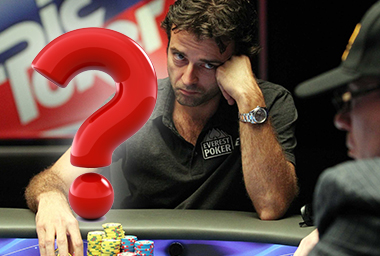
Bets and Raises
In $2/$4 Limit, the blinds are $1 and $2, while bets and raises pre-flop and post-flop are $2, and bets and raises after the turn and river are $4.
In $1/$2 No Limit, the blinds are $1 and $2, but bets are always at least $2. Raises must be at least double the previous bet, but re-raises are a different matter, and follow house rules. In some poker rooms, the re-raise must be at least double the previous total bet. In other rooms, it must be double the previous raise. I.E. If the original bet is $2, and someone raises to $5, usually a re-raise must be at least $10 (double the prior bet), while some rooms require it to be at least $8 (the amount of the prior raise of $3 on top of the $5 to call). It gets confusing what a minimum re-raise would be when the prior raise is a partial all-in.
Minimum bets in no-limit are always the big blind. Prior bets and raises do not affect the minimum for the next round in a hand (although they very much affect strategy).
When someone wants to call or raise, but doesn't have enough chips to do so, he is "All-In". Players cannot reach into their wallet to reload during a hand. When a player is all-in, all he can win from each player in the hand is what he himself risked. Any additional money bet is in a side-pot for the remaining players.
Multiple side-pots will be created when several players are all-in. It is advisable to watch the dealer to make sure the side-pots are divided correctly. This tends to be an area where mistakes happen.
Most poker rooms will "Cap" the betting to a certain number of raises per betting round, usually 4 (1 bet plus 3 raises). I.E. After 3 players have raised, the remaining players can only call or fold. There is never a cap when only two players remain in a hand. The cap is there to prevent two players, working as a team, to continue raising until the remaining players fold.
If a player raises, but is all-in for less than a full raise, different poker rooms handle it differently. Say there are only 3 players. Player 1 bets $10. Player 2 calls. Player 3 goes all in for $17. In some poker rooms, since that raise was for more than half of the required amount, it is considered a valid raise, allowing player 1 to re-raise. The minimum amount of that re-raise can vary by house rule too. However, in other poker rooms, that $17 all in does NOT qualify as a raise, so player 1 and 2 can only call or fold.
There is a third type of game sometimes offered, called Pot Limit. It operates just like No Limit with the single exception that there is a maximum raise amount equal to the value of the pot.
When betting the maximum in Pot Limit, the total of the pot, all called bets, as well as your own call, is the maximum you can raise. For example, say there's $35 in the pot pre-flop. After the flop, there's a bet of $5 with two callers when the action gets to you. If you want to bet the maximum, you say "Pot" or "Max." The dealer will then count it out and tell you the total you need to bet. In this case it would be $60. I.E. The $35 pot, the $5 bet plus two callers of $5 each, as well as your own $5 call for a total pot of $50. Add the $5 call to the $50 raise, makes your total bet $55. If the next player also wants to raise the maximum, it will cost him $55 first to call your bet, which makes the pot $160. So add a raise of $160, for a total bet of $215.
Chip Stack
Some poker rooms allow cash to play. I.E. You can have cash in your stack of chips. If they allow it, they will usually only allow $100 bills.
Once you put chips (or cash) on the table, they must remain on the table until you are ready to give up your seat. The novice tendency is to pocket part of the winnings from a big pot, since this is a typical way to protect winnings on the regular casino floor. The reason you can't do that at the poker room is, you're not playing against the house. Once you win that money from a player, that player has the right to try to win it back, for as long as you're still seated there.
If a friend / spouse comes along and asks for money, you can't give them part of your stack - even if they are planning on sitting at that table. To give them money, you'll have to reach into your wallet.
The exception to this rule is to pay a waitress or massage person, since this is usually a small / insignificant portion of your stack. Also, since tipping the waitress is encouraged and delaying the game is discouraged, it's OK to tip out of your stack. Similarly, it's OK to pocket a few souvenier chips.
You should stack your chips in a manner that makes it relatively easy for another player to extimate the total. Do this by keeping stacks a uniform height of 10 or 20 chips, all the same color, with the high denomination stacks in front.
If you need to take a smoke / bathroom / food / whatever break, and intend on returning to that table, you must leave all your chips where they are. Usually, there is no reason to be nervous. While Poker is a game of taking money from the other people at the table, outright theft is very rare.
Absence
If you are absent long enough that you have missed the blinds, a small plastic disc with "Missed Blind" on it, will be at your stack. (Note: These discs are called buttons. Much smaller than the Dealer Button, which is often referred to as "THE Button".) When you return, you'll need to "post" both blinds. The big blind will stay in front of you, and can act as your chips to call the bet, while the small blind you pay goes right into the pot. You have the option to sit out hands and wait for the big blind rather than post.
If you are absent for a long time, more Missed Blind or Absent buttons will accumulate at your stack. If enough of them accumulate, and there is a wait list, a floor person will bag your chips and open the seat. You can claim your chips at the desk when you return, but you've lost the seat.
If the poker room has a Bad Beat Jackpot, you may remain eligible as long as there is no "Missed Blind" button at your seat. Some poker rooms require you to have been dealt in to the hand to be eligible.
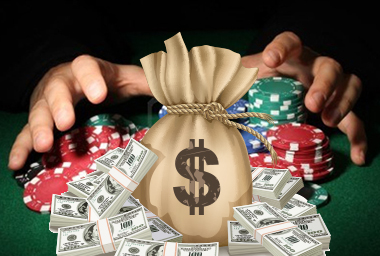
Bad Beat / High Hand
Many poker rooms feature a Bad Beat Jackpot. When the pot exceeds $20, an additional $1 is removed, and is dropped into a separate bucket when the hand is over. At the end of the day, these are collected and added to the jackpot.
The Bad Beat will win when a very rare hand is beaten. In most cases the rules dictate that the players hold a pocket pair, or use both cards to make a straight flush. The minimum hand to qualify as the loser can vary from as low as Aces full of Jacks, to Quad Queens.
Often the Bad Beat will go for weeks or even months before being hit. When it hits, usually the loser of the hand gets 40% of the jackpot. The winner gets 20% and 20% is shared among the other players at the table. The remaining 20% goes to restart the next jackpot. Some poker rooms will only put the 80% to be divided on the tote board, dividing it as 50%, 25% and 25% when hit. Some share that last part among all active players in the room. In Atlantic City, the four Caesars properties are linked. When it hits in any of their 4 poker rooms, all players in all 4 rooms get a share.
Instead of a Bad Beat, which can grow for months before being hit, some casinos have a High Hand where $1 is removed when the pot is $20, and they keep track of the high hand. Every few hours the High Hand rakes are collected and given to the person with the highest hand. In most cases, there does not need to be qualifying losing hand, or even a showdown. Just show the hand to the dealer and floorperson to be elligible.
Some casinos do other things such as bonus prizes for quads and straight flushes which pay an immediate bonus, or spin a prize wheel.
Deals / Chops
When you watch shows such as High Stakes Poker, the players often agree to deals, most commonly, to "Run It Twice." Most of the types of deals seen on that show are not allowed at low stakes games, primarily because they are confusing to rookie players, and result in slowing the game.
The exception is to chop the blinds. If all players fold, when the action gets to the small blind, either he or the big blind will suggest they chop. This means that they take back their blinds, the hand is over and the dealer button advances. This is encouraged by poker rooms since it is unlikely that the pot will grow, so this prevents wasting time on a hand that will produce little or no rake.
Miscellaneous Novice Mistakes and Bad Habits
Pay Attention to the Action
Because the software does things for you, many online poker players learn bad habits. Specifically, online you can call or fold ahead of time, as well as check a box to automatically post blinds. You may not realize it, but the software waits until it's your turn to actually take the action. When you're at a live table, failure to wait your turn, failure to put up your blinds, and failure to know there was a raise, are the biggest indicators that you're a novice. Basically, any sort of acting out of turn is bad. On the other hand, occasional minor mistakes are easily forgiven and forgotten.
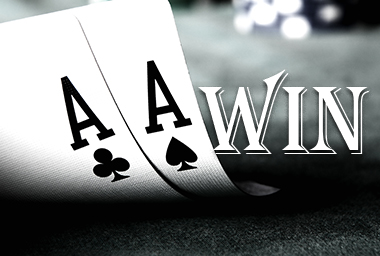
The exception to this is if you are dealt garbage and you want to run to the restroom. Go ahead and put your cards forward just a little to indicate the fold, then get up and leave. Don't toss them to the dealer as you would if it were your turn, as that may cause the person on your left to think it's his turn to act. If you like, tell the person next to you fold for you, this way it's understood that it's not his turn yet.
Any other type of acting out of turn can influence the players that are thinking about their action.
For example, say a player is thinking about making a bet when the player after him bets out of turn, it will affect the decision of the player who was skipped. If a latter player calls a prior bet, but the skipped player makes a raise, different poker rooms will handle the second player's call differently. Some will allow the second player to retract their call, some will require the chips to stand even if they fold, and some will allow him take back his first call, or to call the new raise, but not allow a re-raise.
Unlike the casino floor, where hand signals rule, in the poker room, verbal declarations are binding. If you say "Call" without realizing there was a raise, guess what. You have to call. If you say "Raise" without realizing there was aalready a raise, you will be required to make the minimum re-raise. If you say "Raise to $12" without realizing there was a raise to $10, you may be required to make the minimum re-raise. You will NOT be allowed to raise higher than that, because that's would be a "String bet".
String Bet
Bets and raises must be made in one motion or one declaration. If you specify "Raise", it is then acceptable to put out the chips for the call, then stop and think about the raise, and then put the raise out. But that raise must go out in one motion. You can't put chips out and bring your hand back to put more out. If you want to raise so much that you can't handle the number of chips, just announce the amount and then take as many steps as necessary.
A statement such as "I call your bet and raise you $x" is illegal. Yes, this is typical of home games, and is seen in movies and non-poker TV shows all the time, but once you say "call", you're done. Ditto for "I see your bet, and..." Sorry. There's no 'and..."
Forward Motion
While verbal declarations are binding, words are unnecessary. Chips moved in front of your cards (or past the line if there is one), are all that is necessary to indicate your action. However, make sure that action is correct. If you intend to call $2 by throwing in two $1 chips, and mistakenly throw in two $5 chips, that's a raise to $10. On the other hand, if you instantly realize your mistake, you may be allowed to fix it. But the window of opportunity is very short, and you will be limited on the number of Mulligans you get.
Some poker rooms state that ANY forward motion, or chips brought over the line, is a bet. While many poker rooms allow you to grab a stack of chips, and then drop only a few or even just one of them, some rooms will state that whatever is in your hand, is the bet.
If you grab a stack of chips, with the intention of dropping several of them as your bet, but you accidentally drop only one and start to pull your hand back, that's a call. If it's not enough to be a call, you'll be required to complete it, but not allowed to raise. If you drop more than what you intended, it could be a raise. For example, if the bet is $15, and you drop 4 red $5 chips, you can take one back. But if you drop 5 of them, many proker rooms will consider that a raise, and you'll be required to put out another $5 to make the raise correct.
Single / Multiple Chips
If you put out a single large chip, regardless of how large, or how many smaller chips you have, it's a call.
For example, if the bet is $2, and you have a ton of $1 chips, and you put out ANY larger chip, it's still a $2 call. On the other hand, if the bet is $16, and you put out $26 (one $25 plus one $1), and you're in a poker room that recognizes more than half a raise as valid, you'll be required to bump it up to a full raise. Sure you intended to get change because you may not have any $5 chips. Just say "Call" before putting out the $26, and you'll get the change intended.
On the other hand, if you're in a poker room that doesn't recognize a partial raise, and the bet is $16, even if you put out $31, in ANY combination, it's still a call, and your bet will be reduced to $16. The exception is if $31 is all you have. You're All-In without declaring it.
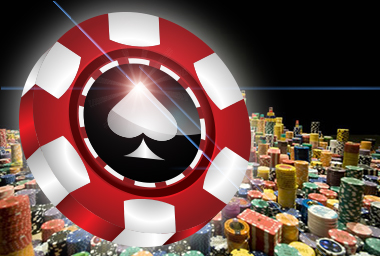
Do not make change out of another player's bet. The dealer will make the change necessary, sometimes while action is going on, sometimes when that betting round is completed.
Action
Once the player before you has declared his actions, it is acceptable for you to take your own action. You do not have to wait. It is the dealer's job to make sure the previous player puts out the chips he intended, but you're free to take your own action immediately.
Two Cards To Win
When it comes to the showdown, the player who last bet or raised on the River is required to show his hand first. If there was no River bet, some poker rooms require the last player who bet or raised on the prior rounds to show first, others require the person to the button's left to show. Once that player shows, it's up to the remaining players to show a better hand, or to fold.
If the player that is required to show decides to fold, then the other player should show his hand to win the pot. Some poker rooms do not enforce this rule.
Players must show both cards to win. In the event the winning player only shows one card, and throws the other into the muck pile, the losing player, after exposing both cards, can claim the pot.
Cards Speak
At a showdown, when a player turns up his cards, he plays the best hand possible, regardless of what he may have announced his hand to be.
Show One, Show All
If you show your cards to any player still in the hand, the cards must be exposed to all players. Unless it is absolutely clear that you only showed one card, both cards are exposed. Some poker rooms will expose both cards regardless, should they think that an active player was shown one of your cards.
If you show your card or cards to a player that is out of the hand, or to a player that is all in, the dealer may hold the cards aside to show to the entire table when the hand is over.
Note that it is usually NOT the dealer's job to police this. He may tell a player not to show the cards, but he often won't expose them after the hand unless another player notices this and mentions the "Show One, Show All" rule. Note also that this rule refers to people, not cards. I.E. If you only expose one card, only that one card needs to be shown to the other players, although the dealer may show both because he was uncertain if only one card was shown.
Protect Your Cards
When you peek at your cards, cover them with your hands and lift the corner in a manner that prevents your neighbors from seeing them. Removing the cards from the table, or deliberately exposing them to another player or spectator, can cause your hand to be declared dead.
Place a "Card Protector" (a chip or small lucky charm) on top of your cards to indicate that you have not folded. This is most important for the seat on each side of the dealer. If the dealer accidentally takes your unprotected cards, the floor person may allow you to retrieve them if they are easily identified. Otherwise, you're out of luck.
If a player folds, but throws them into another player's cards, that other player's hand might be killed if not covered by a card protector.
If a player protects his cards with his hands in such a manner that he can be mistaken for not having any cards at all, the betting action could pass him as a result. If so, his hand may be declared dead when it is revealed that he has cards.
At the showdown, if you think you have the winning hand, do not allow the dealer to take your cards until he has pushed the pot to you, or you are shown a better hand. A distracted dealer may not read your hand correctly. If such a dealer takes your cards and places them in the discard pile, your hand might be called dead.
Rabbit Hunting / Muck Diving
Looking for your cards in the muck pile, to verify what would have happened if you hadn't folded, is not allowed.
The dealer is not allowed to show the turn and/or river in a hand that ends before those cards are dealt. A dealer will be written up if he obliges such a request, so don't ask.
Rules Violations
Violating rules, abusive behavior and cursing will result in a warning. Excessive or repeated offenses can result in a time-out, particularly costly in a tournament when your blinds are posed even during the penalty.
More offenses and you will be asked or forced to leave the poker room.
Tournaments
Tournaments are a great way to play on a fixed budget. You buy in for a specific amount, and, with luck, you could be playing for hours, and end up winning a large sum. Of course, you could be knocked out on the first hand.
Some tournaments will allow a player to rebuy until a specified time. This is usually the same as the time limit for late players to get into the game. Some also have an optional Add-On of a specific number of chips for a reduced cost. The time limit for this is often the same as late registrations. Usually all these time limits run until the first scheduled break.
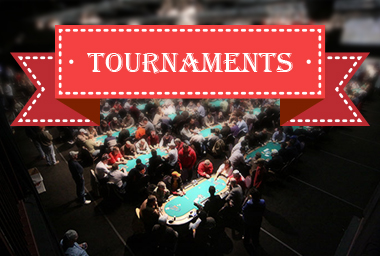
Blinds are raised on a pre-set schedule. Typical low buy-in tourneys have 12 or 15 minute blinds. Better tourneys have 20 minute blinds. Breaks are scheduled, typically about 10 minutes every hour. High priced tourneys can have blinds as long as 2 hours, followed by a 15 minute break. In such tourneys, they will also schedule a longer meal break.
When looking at the list of tournaments offered, you usually just see a price. Sometimes you'll see next to it two prices in parenthesis that add up to the first price. The first number is the amount that goes into the prize pool, the second is the poker room's fee. Nearly all tournaments are priced this way, although it's not always disclosed so easily. Sometimes a third price is listed in parenthesis. This is the amount taken out as a tip for the dealers.
Sometimes the listing will also specify the starting stack. This detail is generally useless without more information. For example, a $20K starting stack sounds better than a $10K stack, unless the first has blinds that start at 100/200 while the second has blinds starting at 25/50. Similarly, How long the blinds last affects the value the starting stack, as well as the value of entry fee.
Some poker rooms disclose this info on their web site, some don't. To find it on a casino resort's website, look for a "poker" link. If it's not obvious, first look for a "casino" or "gaming" link, then the poker link. Eventually, on the poker page, there will be a listing of the tournaments offered. Some also have links for the details.
The prize pool will be divided based upon the number of players, with the payouts posted shortly after the buy-in period is over. Often, 10% of the players will get paid, with most of the money going to the winner. For example, if there are 40 players, there will probably be 4 winners, with the prize pool being 45% to the winner, 30% to second place, 15% to third, and 10% to fourth. Often, the last place person wins little more than the buy-in. Sometimes less!
When it gets close to the money, deals are often formed first for the bubble - the last person before the money. Usually someone suggests that all remaing players donate $10 to $25, depending on the number and buy-in, so that the person on the bubble gets their buy-in back. Often, once the bubble is burst, the remaining players will suggest chopping the pot. I.E. They will work out some kind of deal where they split it rather than play on. If an agreement can't be reached, play resumes. The topic usually pops up again after each person is eliminated. Sometimes, the topic never comes up.
Poker rooms will set up a number of tables for the expected number of players, but often, the tourney starts with chips in front of empty seats. In the interest of fairness, the empty seats are dealt in, and pay their blinds when it is their turn, but they cannot win a hand. If you and the empty seat are the only ones in a hand, you get their chips if they paid the blind. Arriving on time is a great way to get some free chips, by picking off those empty seats.
When there is a break, you must leave your chips on the table. The dealer and/or floor people will watch them. The only time you may take chips off the table is when the tournament director moves you to a different table. Chip racks will be provided as necessary.
Tournaments also have a few specific rules that differ from cash play.
All chip stacks are dealt in, however, you must be seated before the deal is completed, or your hand will be folded, even if you are a blind. If it's your turn to post a blind, it will be posted from your stack even if you are not seated. Consider this if you need to take a bathroom break and can't wait for the next scheduled break.
If all players fold to the small blind, you cannot "chop" and take back the blinds as you can in a cash game.
If any player is all-in with a call, and there are no other players in the hand, the players must show their cards before any additional cards are dealt.
Some additional House Rules may be different for tournaments than cash games.
The Poker Atlas is an excellent resource for poker tournament schedules worldwide. The link provided goes directly to the Las Vegas list.
Be Kind To The Dealer
Some dealers have a hard time reaching the ends of the table. Give them an assist by pushing bets forward when the betting round is complete - but do not make change for yourself from other people's bets. Similarly, after the hand is over, it's acceptable to move the button, but make sure the dealer is aware when you move it, otherwise it may accidentally get moved twice, which will cause confusion.
While the occasional curse after losing a hand is understandable, excessive cursing or berating the dealer for 'making you lose' is not tolerated and can get you removed.
Dealers live off tips. It is traditional to tip the dealer after winning a pot. However, most players will not tip if the pot was small. On the other hand, some players will tip even if their small raise has chased everyone out of the pot, netting them a mere $3 win. A $1 tip is typical unless the pot is large.
Dealers are human and do sometimes make mistakes. Try to be observant to help correct mistakes, but do not berate a dealer when a mistake is discovered.
Advanced Concepts
Post / "Buy" The Button
While all poker rooms will require you to post or wait if you have a Missed Blind button, some also require new players to post or wait when joining a table. The exception is for a recently opened table. If you take a seat that hasn't had the blinds pass it, you aren't required to post.
If you take the seat between the small blind and the dealer button (or return from a break in that position), some poker rooms, usually those that require new players to post, will allow you to "buy" it by posting both blinds. Most require you to wait until the button passes.
Typically, because blinds have already been paid, you sit out one hand for the button to pass, so as to not disturb the sequence of who pays which blind. When you "buy" it, you post both blinds in that hand, rather than the two players who were scheduled to post. In the next hand, you get the button, and the players that should have posted in that last hand will now post. This allows you to get in sooner, while not causing the other players to have to post extra.
Straddle
The person Under The Gun chooses to place a blind raise before the cards are dealt. If no player raises, he gets the option to re-raise when the action comes around. This is often called a "Live Straddle."
Some poker rooms do not allow a Straddle. In that case, a player making such a bet is actually making a blind raise. The difference is, if there are no additional raises, this player does NOT get the option to re-raise.
In some poker rooms, players other than the Under The Gun player can make the straddle, and a variety of rules affect the straddle. These also have differing names such as Button Straddle, Mississippi Straddle, Sleeper Straddle, etc, depending on the rules and who did it.
Several poker strategy books suggest that the straddle is more helpful to the other players than to the person making the straddle bet.
While the Straddle clearly is an advanced strategy move, and is covered in many poker books, it would be advantageous for a novice to at least have a cursory understanding of it, which is why it is briefly covered here.
Note that straddling is never allowed in tournaments.
Additional Resources
Robert's Rules
Many poker rooms use Robert's Rules of Poker. Even if your local poker room uses something else, their rules are probably similar, so this is a good source of information.
"Robert" is Bob Ciaffone, a leading authority on cardroom rules, and a columnist for Card Player magazine. He has compiled a list of rules (some of which are included in this article above) and freely distributes it. He has his own website at www.PokerCoach.us. Among other things, you'll find a link to his rules. He's a good writer but very bad at formatting. You'll find a nicely formatted copy of his rules at various websites, including www.homepokertourney.com/poker-rule-book.htm.
There's also a free and well-designed smartphone app for that called Robert's Rules.
Edit: I recently discovered that the Robert's Rules app is no longer available. But I'll leave the link there in case that was temporary.
Tournament Director's Association
More and more poker rooms are abandoning Robert's Rules in favor of the TDA's rules. Note that most of the rules are similar, but written differently.
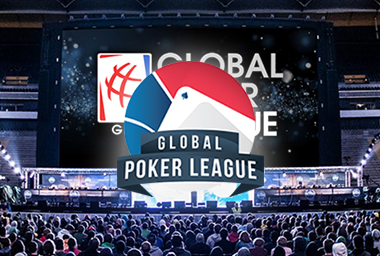
They also have and app for Android, with an iPhone app coming soon.
Poker Leagues
There are poker leagues across the country. Do a Google search in your area.
Most play at a pub or restaurant, with no fees other than a request to patronize the venue.
Unlike a sports league, in poker leagues there is no requirement to play any specific day or number of times. They often have some method of tracking performance, with prizes including trips to Las Vegas or a local casino. While frequent participation makes it is easier to win the big prize that they offer, most leagues have methods where a player can win prizes even when playing infrequently.
Also, to keep it legal and non-gambling, in most cases there is no fee. The league makes money from the venue, the same way the venue would pay DJs and other entertainers. If it brings in business, the venue is happy, so be sure to patronize the venue while you play.
Unlike in a poker room, where it may be good advice to believe the exact opposite of what people tell you, the players in poker leagues tend to be friendly, open, and will offer honest answers to poker questions. After all, if they are kind and friendly, they know you may become a regular player. Many poker league players use it as a way to tune up their game in between their trips to the casino's poker room.
In most leagues, the players do the actual dealing, passing the deck every hand. In some leagues, there is a dedicated dealer at each table. This author has played in both types, but now has graduated to being a dealer in a league with dedicated dealers: World Free Poker, based in Northern New Jersey.
For the price of a burger and a beer, poker leagues are a great way to learn the game.
Comments
I'm the original author.
This article started out as a new thread on the discussion forum. Four years later it was turned into a article. In the meantime, it generated 8 pages of discussion that may be of interest.
Here's a link to the first reply:
http://wizardofvegas.com/forum/gambling/poker/7713-introduction-to-poker-in-a-casino-poker-room/#post113425
Of course, I'd be happy to address any question, either here of in that thread.
Thanks!
Nice article, very exhaustive. Personally, I resist live poker because there is not enough personal space at a full table. Elbow to elbow is too close for me.
Elbow room varies. I've played in many casino poker rooms. I rarely feel crowded - and I'm a big guy. In fact, I generally feel more crowded at the BlackJack and Craps tables than at the poker tables.
Nice article Teddy
Just as a side bar " n areas where there is only one casino, the poker room rake is typically 10%, $5 max all the time."
In Blackhawk and Central City, the rake is typically 10% 5 Max plus $2 for bad beat. Very few winners for obvious reasons
Awesome article Teddy, "Poker nights have taken on a whole new dimension since I discovered the magic of an online betting ID provider. The thrill of the game is now amplified with every bet."
https://kenhsinhvien.vn/wall/ayanshi-arora.1120279/#about



